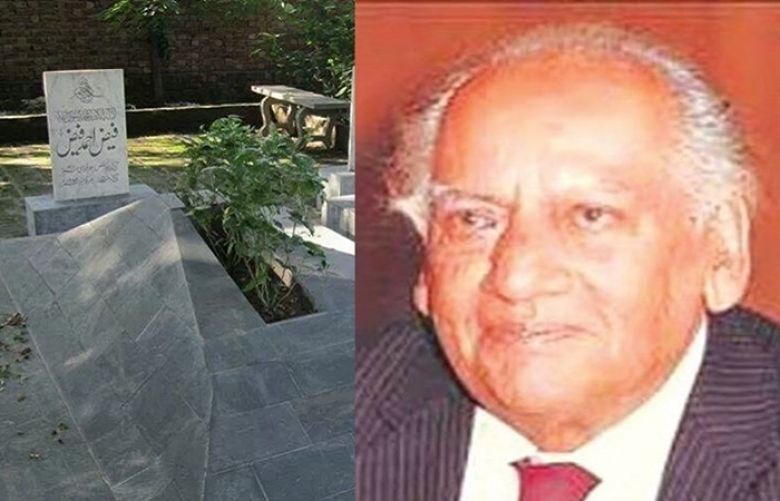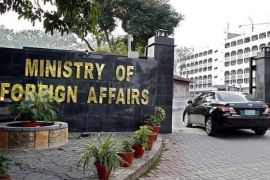On this day 33 years ago, the world lost revolutionary poet Faiz Ahmed Faiz.
“There are few people who are as good in person as they are in their respective creative spaces,” is how author Zehra Nigah described Faiz during a panel discussion held earlier this year at the Karachi Literature Festival (KLF).
Born in Sialkot on February 13, 1911, Faiz Ahmad Faiz married Alys Faiz – a British national who had a tremendous influence on his life and poetry.
Salima Hashmi described her mother as Faiz’s biggest supporter, even though they were complete opposites. “I remember my father telling me that I am able to do whatever I can because I know at the end of the day your mother can also feed you,” Salima said while speaking at the KLF 2017.
In the 1930s, he married Alys, a British national. They had two daughters — Saleema and Muneeza. Alys' influence on Faiz's life and poetry is reputed to have been enormous.
He started a branch of Anjuman Tarraqi Pasand Mussanafin-e-Hind in Punjab in 1936 and was also a member and secretary of this branch.
Faiz had also worked as editor of Mahanama Adab-e-Lateef (1938 1942 AD). He became a lecturer in English at MAO College, Amritsar in 1935 and then at Hailey College of Commerce, Lahore.
He briefly joined the British Indian Army and was promoted to the rank of Lieutenant Colonel in 1944.
He resigned from the army in 1947 and returned to Lahore to become the first editor-in-chief of the Pakistan Times a paper started by Mian Iftikharuddin under Quaid-e-Azam Mohammad Ali Jinnah's patronage.
This paper played an important role in the partition.
Faiz spent much of the 1950s and 1960s promoting communism in Pakistan.
He was charged with complicity in a failed coup attempt known as the Rawalpindi Conspiracy Case and was sentenced to four years of imprisonment in 1951.
The jail term gave him a first-hand experience of the harsh realities of life and provided him with much-needed solitude to think and write poetry.
Two of his greatest works, Dast-e-Saba and Zindan Nama, were products of this period of imprisonment.
“When father was in jail, our mother used to keep telling us that your father is not a thief, he is not a dacoit or smuggler, he is in jail because he speaks the truth,” recalled Salima.
In 1959 he was appointed secretary Pakistan Arts Council and worked in that capacity till 1962.
Returning from London in 1964, he settled down in Karachi and was appointed the principal at Abdullah Haroon College.
Faiz distinguished himself as a journalist and was editor of the Pakistan Times, the Urdu newspaper Imroze and the weekly Lail-o-Nihar.
In the 1965 war between India and Pakistan, he worked in an honourary capacity in the Department of Information.
In exile, he acted as editor of the magazine Lotus in Moscow, London and Beirut.
Faiz was the first Asian poet to be awarded the Lenin Peace Prize, the Soviet Union s equivalent to the Nobel Prize, in 1963.
He died on November 20, 1984.







